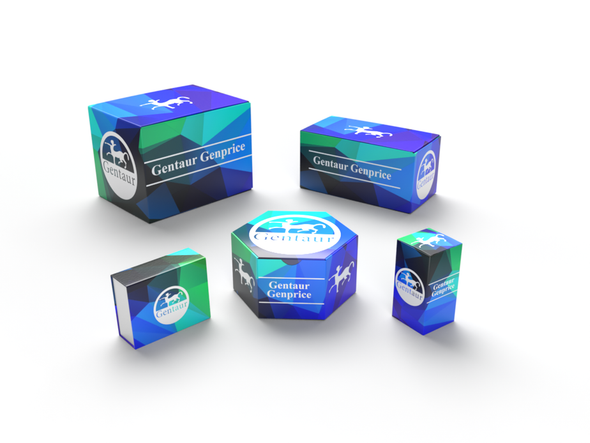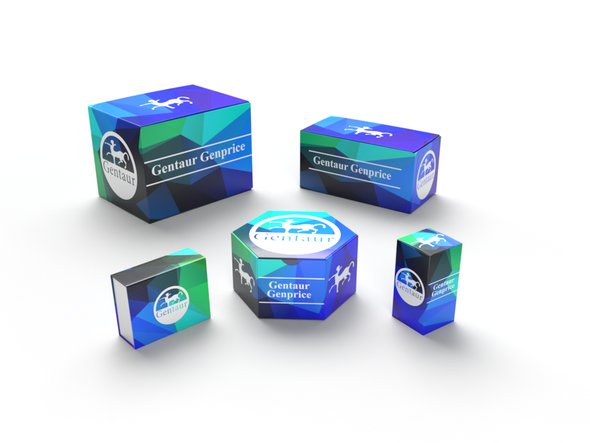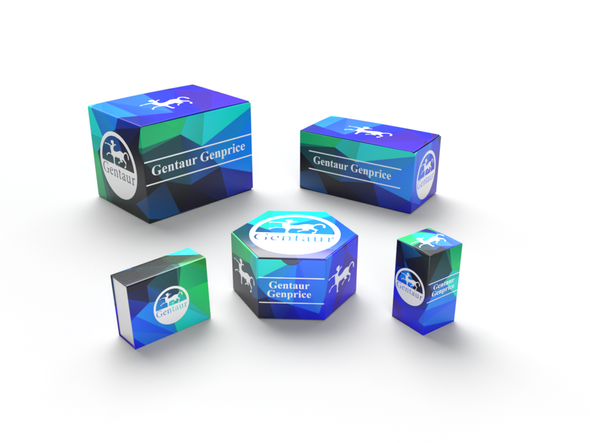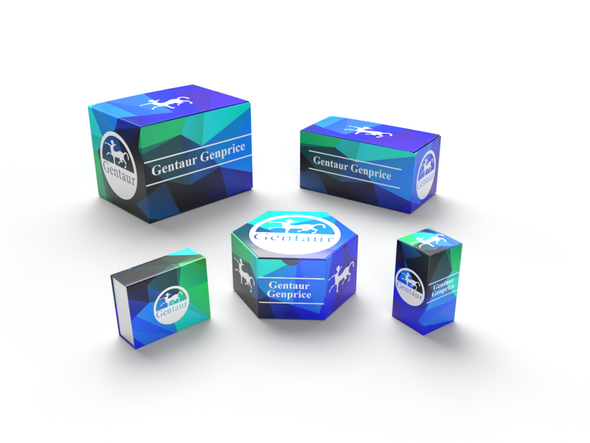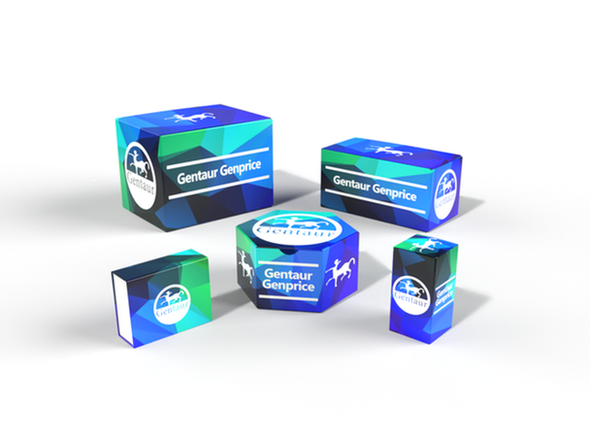Description
Rabbit Anti-Human AGGF1 Antibody | 102-PA13S/102-PA13 | Gentaur UK, US & Europe Distribution
Species: Anti-Human
Host / biotech: Rabbit
Comment: N/A
Label: N/A
Clone / Antibody feature: Rabbit IgG
Subcategory: Polyclonal Antibody
Category: Antibody
Synonyms: Angiogenic factor VG5Q, hVG5Q, G patch domain-containing protein 7, Vasculogenesis gene on 5q protein
Isotype: Rabbit IgG
Application: WB, IHC
Detection Range: WB: Use 1-5 µg/ml; IHC: 1:50
Species Reactivity/Cross reactivity: Human
Antigen: recombinant human AGGF1 (fragment)
Description: AGGF1, also known as VG5Q, was identified by its association with Klippel Trenaunay syndrome (KTS), a congenital vascular morphogenesis disorder (1 3). AGGF1 is expressed by vascular endothelial cells in many tissues (1). It appears to be secreted and promotes endothelial cell proliferation following interactions with endothelial cell surfaces (1). AGGF1 also directly interacts with TWEAK (1), a TNF superfamily ligand with angiogenic properties (8). It was shown that AGGF1 is involved in establishing venous identity in zebrafish embryos. Overexpression of AGGF1 led to increased angiogenesis and increased lumen diameter of veins, whereas knockdown of AGGF1 expression resulted in defective vasculogenesis and angiogenesis. Overexpression of AGGF1 increased expression of venous markers (e.g. VEGFR-3/FLT4), but had little effect on arterial markers (e.g. Notch5). Knockdown of AGGF1 expression resulted in a loss of venous identity (loss of expression of VEGFR-3/FLT4, Ephb4 and Dab2), but had no effect on the expression of arterial development. It was further shown that AGGF1 activates AKT, and that decreased AGGF1 expression inhibits AKT activation. Overexpression of constitutively active AKT rescues the loss of venous identity caused by AGGF1 downregulation. These results indicate that AGGF might be an angiogenic factor with an important role in the specification of vein identity and suggests that AGGF1-mediated AKT signaling is responsible for establishing venous cell fate.
Purity Confirmation: N/A
Endotoxin: N/A
Formulation: lyophilized
Storage Handling Stability: The lyophilized antibody is stable for at least 2 years at -20°C. After sterile reconstitution the antibody is stable at 2-8°C for up to 6 months. Frozen aliquots are stable for at least 6 months when stored at -20°C. Addition of a carrier protein or 50% glycerol is recommended for frozen aliquots.
Reconstituation: Centrifuge vial prior to opening. Reconstitute in sterile water to a concentration of 0.1-1.0 mg/ml.
Molecular Weight: N/A
Lenght (aa): N/A
Protein Sequence: N/A
NCBI Gene ID: 55109


